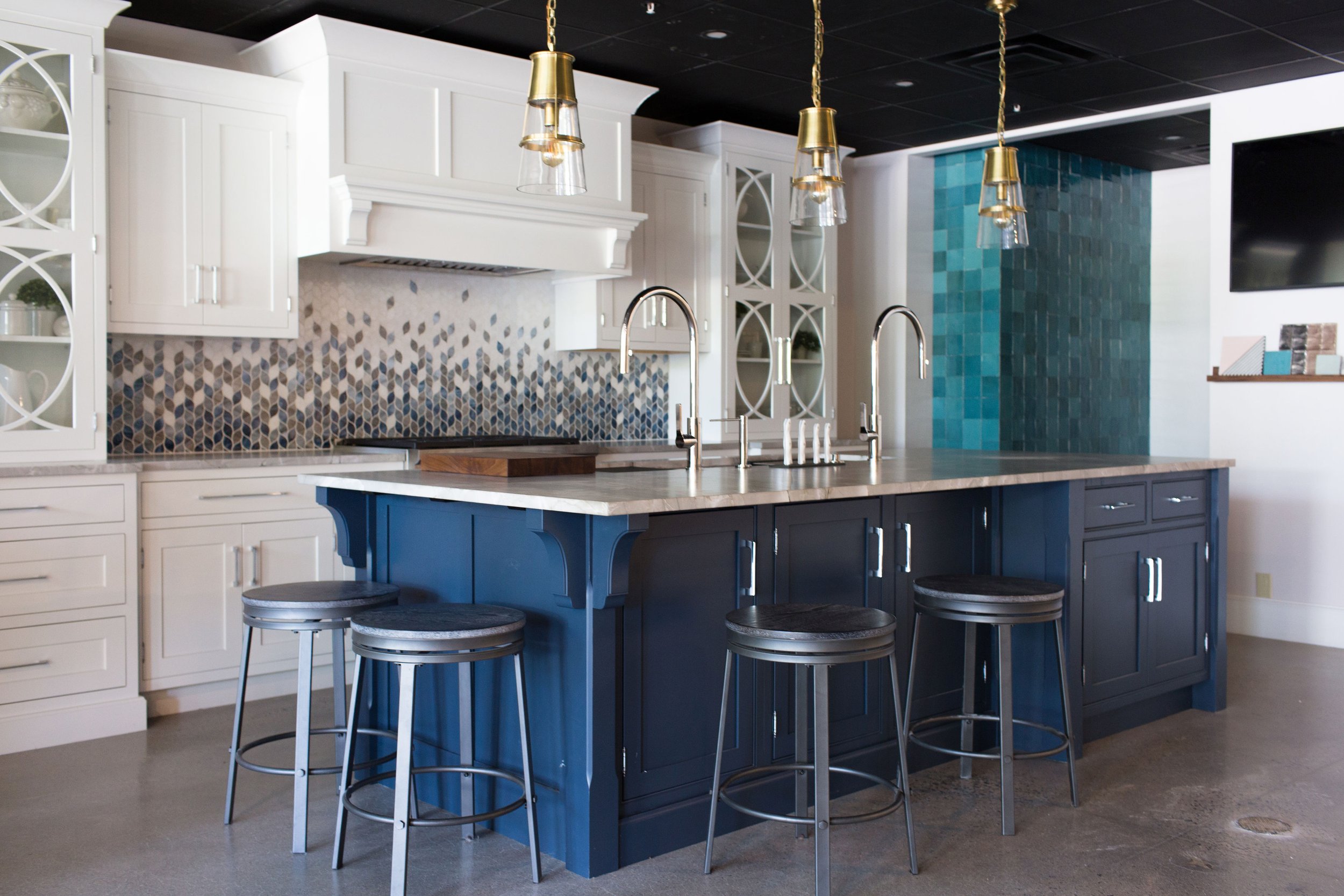How to Choose the Right Countertop
You’d be amazed at how many options there are for countertops. There’s the classic granite, marble, quartz, tile, and soapstone and then there’s also the more unconventional—but still functional and beautiful—concrete, wood, and metal. But how do you choose the right one?
Like most things concerned with the design of your kitchen, it ultimately depends on what your preference is. However, there are certain countertops that are better suited for certain kitchens.
The Conventional Countertop
There are so many different kinds of countertops and it would take forever to compile a list and talk about their pros and cons and what kitchens they work in best, so instead, here’s a list of the more popular options: granite, marble, and quartz.
Granite
Granite is not only one of the more durable countertop materials, but it’s also one of the most beautiful. And while they can be pretty pricey, with the proper maintenance and care you won’t have to worry about replacing it frequently. Additionally, it’s a natural stone, making it eco-friendly. However, if it’s not properly sealed or not resealed when necessary you could get stains from spilled liquids and food. But if it’s properly sealed and resealed, your granite countertops will be stain-resistance, easy to clean, and resistant to any damage from heat either from hot pans or hot hair tools.
Marble
Marble is one of the more expensive countertop options, but it’s unique and elegant veining and coloring make it worth it. Like granite, it’s pretty durable when properly sealed and cared for, however, marble does require to be sealed about once a year and can etch if it’s exposed to acidic foods or materials. It comes in different finishes—honed or matte, polished, and leather—so you have the freedom to choose what feels best to you. Also, marble is extremely heat resistant, making it great for avid bakers and also a great option for the bathroom. Another unique thing about marble is that it can get a light patina as it ages, giving it an antique look.
Quartz
While quartz is similar to granite and marble in that it’s extremely durable, it does have one major difference: it’s an engineered product rather than solid stone. While it’s mostly made up of the natural stone quartz, there is a small percentage that is made up of binder and color. However, this isn’t necessarily a bad thing because it means that there are more options to choose from. Also, unlike granite and marble, quartz doesn’t need to be sealed and is non-porous, making it resistant to staining and bacteria. Additionally, the resin makes it more flexible, so it won’t chip as easily as other natural stones. On the other hand, quartz is not as heat resistant as granite or marble and if it’s exposed to direct sunlight for an extended period of time, it could fade and warp. Furthermore, quartz is one of the most expensive materials for countertops.
The Unconventional Countertop
Lately, there have been a lot of kitchens featuring non-stone countertops and instead feature materials like concrete, wood, or even stainless steel. These are great options because they bring a more earthy and industrial look to the kitchen or bathroom and are unique.
Concrete
Concrete countertops are extremely strong and durable. They can also be customized to fit oddly shaped or sized countertops on-site. Additionally, homeowners can lay tile, stones, glass, or even shells in the countertop to personalize it to their taste. There are also ways to pigment the concrete, allowing you to change the color; as well as ways to add different textures to the surface. But concrete is also extremely expensive and can cost up to $140 per square foot for an installed countertop at some places. Additionally, they require a little more maintenance and should be sealed regularly to keep it easy to clean, and even if properly sealed regularly, they are prone to staining from coffee or juice, so probably not the best countertop for those who have recently started a family.
Wood
Wood countertops are great for people who love to cook and prepare food, and for those of us who like to be environmentally conscious; there are plenty of beautiful eco-friendly countertops made from reclaimed wood. Natural wood creates a warm and inviting atmosphere in the kitchen, and the more you use it the more character it gets. They can handle cutting well and also are great at hiding scratches and cuts. Also, wood countertops can be sanded down and resealed after years of use to bring them back to their original state. Since wood is absorbent, it’s important to periodically reseal your countertops to keep water from warping the wood, which will inevitably cause the pieces of wood to separate. Also, even when sealed, it’s not a good idea to expose them to water over a long period of time. If you notice there’s a scratch in the wood that goes through the sealant, it’s important to oil the area—some manufacturers even suggest oiling wood countertops every 1-3 months with linseed oil to protect it from water damage.
Stainless Steel
Stainless Steel countertops are not only elegant and chic, but they’re also extremely practical. The industrial look of stainless-steel countertops compliments more natural materials like wood and natural stone and is also a great option for those who want a retro or modern look. It’s also durable and can last up to 15-25 years. Additionally, stainless steel is one of the most sanitary options for a countertop—which is one of the reasons they’re used in commercial kitchens—because it’s not porous like natural stone, concrete, or wood. However, like most countertop options, good quality stainless steel is pretty expensive. You should stay away from material that is thin and choose a thicker grade, so it holds its shape better. Also, it’s not necessarily warm and inviting like wood, which sometimes deters homeowners from considering it, but if you’re not too worried about that and prefer practicality, then stainless steel is definitely for you.
This list only scratches the surface of the many countertop material options that are out there. These materials are some of the more popular ones in kitchen design and bathroom design, however, if you have any questions regarding a countertop material that’s not on the list—or questions about the materials mentioned above—please leave a comment below and I will do my best to answer them.
This information was found at Countertop Guides where you can also find more information about these types of countertops and other types.

